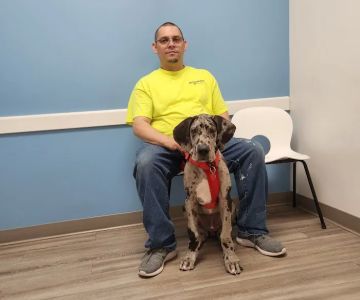Where Are Veterinary Schools? Discover the Best Locations for Aspiring Veterinarians
- What is Veterinary School?
- Best Veterinary Schools in the USA
- Top International Veterinary Schools
- How to Choose the Right Veterinary School
- Tips for Applying to Veterinary School
- Real-Life Story: Becoming a Veterinarian
What is Veterinary School?
Veterinary school is where future veterinarians are trained to care for animals, diagnose illnesses, perform surgeries, and understand the intricacies of animal care. The process of becoming a veterinarian involves completing an undergraduate degree followed by a rigorous veterinary program. These programs equip students with the knowledge and hands-on experience they need to care for both companion animals and livestock.
One of the most common questions aspiring vets ask is, “Where are veterinary schools located?” The answer depends on the country and region, but some schools are renowned for their exceptional programs and research opportunities. Veterinary schools are usually found in major cities or academic hubs where there is a high demand for animal care professionals.
Best Veterinary Schools in the USA
The United States is home to several prestigious veterinary schools that offer comprehensive programs in veterinary medicine. As I researched veterinary schools, I discovered that some of the most well-known institutions are:
- Cornell University College of Veterinary Medicine – Located in Ithaca, New York, Cornell offers one of the top veterinary programs in the world, with a focus on both clinical and research training.
- University of California, Davis – School of Veterinary Medicine – Known for its cutting-edge research, this school is consistently ranked among the best for its veterinary program.
- Colorado State University College of Veterinary Medicine and Biomedical Sciences – Located in Fort Collins, Colorado, CSU is highly regarded for its innovative approach to veterinary education and a strong emphasis on public health.
- University of Pennsylvania School of Veterinary Medicine – One of the oldest veterinary schools in the U.S., Penn Vet is known for its strong clinical training and emphasis on animal welfare.
These schools are just a few examples of top-tier veterinary programs in the USA. Each of these schools offers a unique set of opportunities, from specialized research to internships with renowned veterinary professionals.

740 Wertzville Rd, East Pennsboro Township, PA 17025, USA
See DetailsTop International Veterinary Schools
While the U.S. is home to some of the most prestigious veterinary schools, there are also many excellent institutions worldwide. If you're considering studying veterinary medicine abroad, here are some top veterinary schools to consider:
- University of Edinburgh - Royal (Dick) School of Veterinary Studies – Located in Edinburgh, Scotland, this is one of the oldest and most respected veterinary schools in Europe, known for its clinical training and research.
- University of Sydney - Sydney School of Veterinary Science – In Australia, this university offers a world-class veterinary program with a focus on global veterinary health.
- University of Guelph - Ontario Veterinary College – This Canadian school is one of the best veterinary institutions in North America, with a strong focus on both rural and urban animal health.
- Royal Veterinary College, London – A leader in veterinary education and research, the RVC is one of the most prestigious veterinary schools in the UK.
These international schools provide opportunities for global exposure and networking, which can be an added benefit for future veterinarians looking to make an impact on animal health worldwide.
How to Choose the Right Veterinary School
Choosing the right veterinary school is a big decision, and it involves more than just selecting a school based on its rank. As someone who has gone through this process, I can tell you that it’s important to consider factors like location, curriculum, faculty, research opportunities, and financial aid options.
For example, do you want to specialize in a certain area of veterinary medicine, such as large animal or exotic animal care? Some schools offer specialized programs that cater to these interests. Additionally, consider the school’s internship and externship opportunities, which can provide hands-on experience in real-world veterinary settings.
Another important factor is the overall culture and support system at the school. Some veterinary schools offer strong mentorship programs, while others may have more competitive or intense environments. Make sure to visit the campuses and talk to current students to get a feel for what it’s like to study there.
Tips for Applying to Veterinary School
Getting into veterinary school is highly competitive, so it’s important to prepare well in advance. Here are a few tips I’ve learned from talking to current veterinary students and admissions officers:
- Get Relevant Experience – Most veterinary schools require applicants to have some hands-on experience working with animals. Volunteer or intern at local animal shelters, veterinary clinics, or farms to build up your resume.
- Maintain a Strong GPA – Veterinary schools are academically rigorous, so it’s important to demonstrate that you can handle the workload by maintaining a solid GPA during your undergraduate studies.
- Prepare for the GRE or other entrance exams – Some schools require standardized test scores, so make sure to prepare well for the GRE or any other exams required by your school of choice.
- Write a Compelling Personal Statement – This is your chance to explain why you want to become a veterinarian, what motivates you, and why you’re passionate about animal care.
Real-Life Story: Becoming a Veterinarian
Let me share a story about Dr. Lisa, a veterinarian who graduated from one of the top veterinary schools in the USA. Dr. Lisa was always fascinated by animals and knew from a young age that she wanted to become a veterinarian. After years of hard work and dedication, she was accepted into the University of California, Davis – one of the best veterinary schools in the country.
Throughout her studies, Dr. Lisa had the opportunity to work with various animal species and even participated in a research project on animal disease prevention. Today, she is a successful veterinarian running her own practice. She credits her success to the comprehensive education she received at her veterinary school, which provided her with the skills, knowledge, and hands-on experience necessary to thrive in the field.










